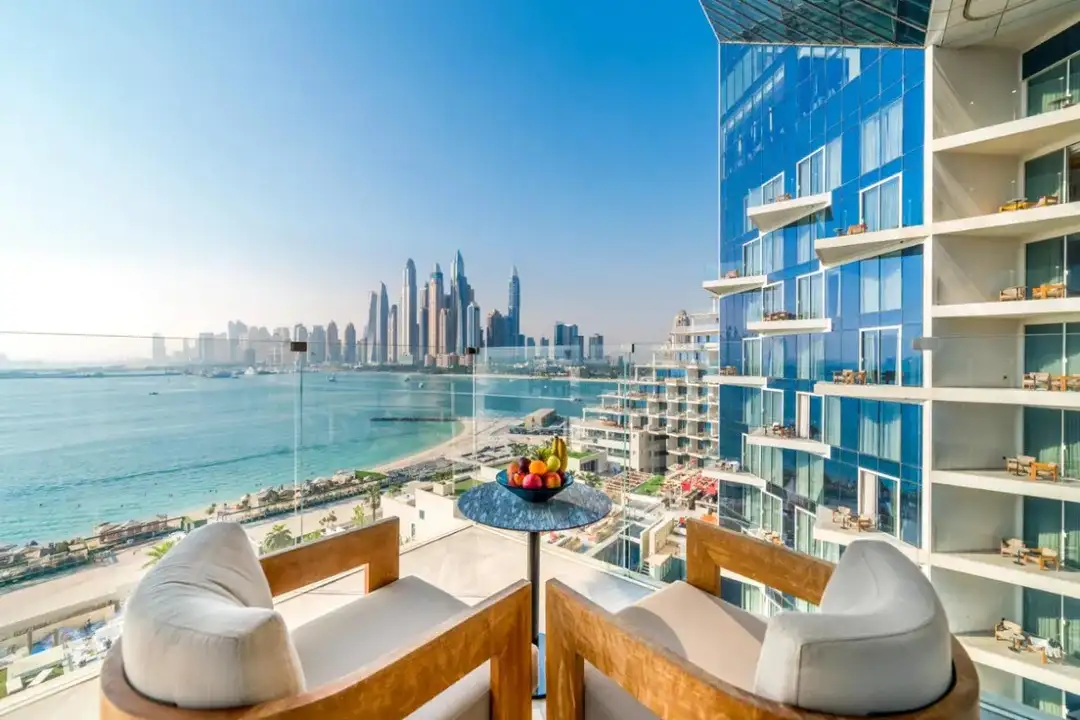Navigating the realm of real estate can be a complex journey, especially when it comes to understanding the nuances of real estate and property taxes. This article aims to demystify these concepts for those intrigued by the booming Dubai property market. Whether you're looking to buy a home or invest in a villa, understanding these taxes is crucial. Let's embark on this journey with clarity and simplicity, making expert knowledge accessible to all.
Real Estate Taxes: The Basicsx
Real estate taxes, a staple in property ownership, are levied by local governments and are calculated based on the assessed value of your property. This value includes both the land and any structures on it, like houses or other buildings. For prospective buyers in Dubai, a hub for luxurious properties, comprehending these taxes is an essential step before searching for phrases like "buy villa in Dubai."
How Are They Calculated?
The calculation of real estate taxes involves assessing the property's market value and then applying a tax rate, which varies depending on the location. For instance, in Dubai's dynamic property market, these rates can be influenced by various factors, including the property's location, type, and amenities.
Property Taxes Explained
Property taxes share similarities with real estate taxes but have a broader scope. They can encompass taxes on personal property, such as vehicles and business equipment, which is generally not a concern for someone looking to "buy home in Dubai." However, when it comes to residential properties, the terms property taxes and real estate taxes are often used interchangeably.
Why the Confusion?
The confusion between real estate and property taxes often stems from their overlapping areas. In many jurisdictions, property taxes include real estate taxes but can also extend to other forms of property. This distinction is vital for potential buyers and investors in real estate markets like Dubai, where understanding these terms can impact investment decisions.
Similarities and Differences
While real estate and property taxes are often used interchangeably, the primary difference lies in their scope. Real estate taxes are focused solely on immovable property – land and buildings. In contrast, property taxes can cover a wider range of assets, including movable property like vehicles and machinery. This distinction is particularly relevant in a market as diverse as Dubai's, where investment opportunities range from residential properties to commercial ventures.
Tax Implications for Buyers
For those using phrases like "buy villa in Dubai," understanding these tax implications is crucial. It's not just about the purchase price; it's also about the ongoing tax obligations associated with property ownership. Being aware of these details can help in making a more informed and financially sound decision.
Buying Property in Dubai
The real estate market in Dubai is renowned for its luxury and diversity, offering everything from high-rise apartments to sprawling villas. The city's favorable tax policies have made terms like "real estate Dubai" and "buy home in Dubai" highly popular among both local and international investors.
Understanding Dubai's Tax Landscape
In Dubai, the tax landscape for real estate is notably attractive, with no annual property taxes levied on residential properties. This policy makes Dubai a lucrative destination for property investments. However, it's important for buyers to stay informed about any other fees or charges that might be associated with property ownership in the region, such as registration fees or service charges.
Tax Benefits for Buyers
Dubai's real estate market stands out for its tax-friendly environment, especially for international investors. The absence of annual property taxes on residential properties is a significant advantage. This makes phrases like "buy villa in Dubai" not just a dream but a financially viable option for many. However, it's essential to consider other potential costs, such as one-time land registration fees, which are a part of the property buying process in Dubai.
A Thriving Market
With a range of properties, from luxurious villas to modern apartments, the Dubai real estate market caters to a diverse clientele. The tax benefits add to the allure of investing in Dubai, making it a hotspot for both residential and commercial property investments.
Navigating Taxes in Real Estate
For those looking to invest in Dubai's real estate, understanding the tax implications is key. It's not just about the initial purchase but also the long-term financial responsibilities. Here are some tips:
-Do Your Research: Before searching for "buy a home in Dubai," familiarize yourself with the local tax laws and regulations.
-Consult Experts: Engage with real estate experts and tax advisors in Dubai to get a clear picture of your potential tax liabilities.
-Consider All Costs: Remember to factor in additional costs like registration fees, service charges, and any other applicable expenses.
In conclusion, while real estate taxes and property taxes are often used interchangeably, their technical definitions can differ, especially when considering broader property taxes that encompass more than just real property. In vibrant markets like Dubai, where the real estate sector is booming, understanding these differences is crucial for anyone looking to invest in property. The city's favorable tax policies make it an attractive destination for property investment, but it's always wise to be fully informed about all financial aspects of your investment.
Practical Tips for Property Buyers:
Budget Wisely: When planning to "buy villa in Dubai," ensure you have a comprehensive budget that includes potential tax implications and other related costs. This foresight can prevent unexpected financial burdens later on.
Stay Updated: Tax laws and regulations can change. Regularly updating your knowledge, especially in a dynamic market like Dubai, is crucial.
Investment Considerations
Property taxes, while not a direct concern in Dubai's residential market, play a significant role in real estate investment decisions globally. Investors need to factor in these taxes when calculating the return on investment and the total cost of ownership. In Dubai, the lack of annual property taxes adds to the appeal of investing, but it's always wise to consider other financial obligations that come with property ownership.
Long-term Financial Planning
Owning property, be it a home or an investment, requires long-term financial planning. This includes not only the cost of acquisition but also the ongoing expenses. In Dubai, while the absence of annual property taxes is a boon, other costs such as maintenance, utility charges, and possible service fees should be part of this planning.
A Hub for International Investors
Dubai's real estate market is a melting pot of cultures and investments. The city has become a hub for international investors, partly due to its tax-friendly policies. Terms like "villa in Dubai to rent" or "buy home in Dubai" are not just search phrases but represent the diverse opportunities available in the city.
Why Dubai Stands Out
Dubai stands out for several reasons:-Tax Advantages: No annual property taxes on residential properties.-Diverse Properties: From ultra-modern apartments to sprawling villas, there's something for every taste and budget.-Strategic Location: Dubai's location makes it a gateway between the East and the West, adding to its appeal as an investment destination.
Embracing Change
The real estate market is ever-evolving, and Dubai is no exception. Staying informed and adaptable is key to making the most of your investment. Whether you're looking to buy a home or invest in a property, understanding the nuances of real estate and property taxes, as well as the overall market dynamics, is vital.
Looking Ahead
Dubai's real estate market continues to thrive, attracting investors and homebuyers worldwide. With its favorable tax policies and diverse property options, the future looks bright for Dubai's real estate sector.
Emerging Trends
As Dubai continues to grow and evolve, its real estate market shows promising signs of innovative trends and developments. The future of real estate in this vibrant city is shaped not only by luxurious properties but also by sustainable and smart living solutions. Investors and homebuyers looking at terms like "real estate a Dubai" should be aware of these emerging trends.
Sustainable Development
Sustainability is becoming a key factor in Dubai's real estate development. Eco-friendly buildings, green spaces, and energy-efficient designs are increasingly prominent, reflecting a global shift towards environmentally conscious living.
Real Estate and the Global Economy
The global economic landscape inevitably impacts the real estate market, and Dubai is no exception. Fluctuations in the global economy can influence property values, investment appetites, and even tax policies. Keeping an eye on these changes is crucial for anyone involved in the Dubai real estate market.
Adapting to Changes
The ability to adapt to economic changes is a vital skill for real estate investors. This includes understanding how global trends can affect local markets and being prepared for potential shifts in policies, including taxes.
Diversifying Investments
For those interested in "buying a home in Dubai" or investing in properties, diversification is key. This means exploring different types of properties, such as residential, commercial, and retail spaces. Diversification can help mitigate risks and maximize returns, especially in a market as dynamic as Dubai's.
Long-term vs. Short-term Investments
Understanding the difference between long-term and short-term investment strategies is crucial. Long-term investments often involve buying properties for rental income or capital appreciation, while short-term investments might focus on quick resale profits.
Stay Informed
The most important piece of advice for anyone looking to enter the Dubai real estate market is to stay informed. This involves not just understanding the current market trends but also keeping abreast of tax laws and regulations.
Seek Professional Advice
Don't hesitate to seek advice from real estate professionals, tax advisors, and legal experts. These professionals can provide valuable insights and guidance, ensuring that your investment decisions are sound and well-informed.
Identifying Opportunities
Dubai's real estate market is ripe with opportunities, but identifying the right ones requires insight and strategy. For those using search terms like "buy villa in Dubai," it's important to understand the market trends, areas of growth, and potential for return on investment.
Leveraging Market Trends
Staying ahead of market trends is crucial. This involves monitoring developments in different neighborhoods, understanding the demand for various property types, and being aware of the overall economic climate in Dubai.
Understanding Legal Frameworks
Investing in real estate is not just about financial considerations; it's also about understanding the legal frameworks that govern property ownership and transactions in Dubai. This includes laws related to property rights, transaction processes, and, importantly, tax implications.
Navigating the Legal Landscape
For international investors, navigating the legal landscape of Dubai's real estate market can be challenging. It's advisable to work with legal experts who can provide guidance on property laws, ensuring compliance and protecting your investment.
Technology in Property Search and Purchase
The rise of technology has transformed the real estate industry. Platforms and apps have made searching for terms like "real estate Dubai" more accessible and efficient. Virtual tours, online transactions, and digital contracts are becoming increasingly common, streamlining the property buying process.
Impact on Investment Decisions
Technology also plays a significant role in investment decisions. Data analytics, market trend predictions, and digital tools can provide deeper insights into the property market, aiding investors in making more informed decisions.
Strategic Portfolio Development
Developing a real estate portfolio requires a strategic approach, especially in a diverse market like Dubai. It involves selecting a mix of properties, such as residential units, commercial spaces, and rental properties, to balance risk and return.
Portfolio Management
Effective portfolio management is key to successful real estate investment. This includes regular reviews of property performance, understanding market shifts, and being prepared to make adjustments as needed.In conclusion, understanding the nuances between real estate and property taxes is just the beginning of a successful journey in real estate investment, particularly in a market as dynamic as Dubai's. With its favorable tax environment and diverse property options, Dubai continues to attract investors and homebuyers from around the world. Staying informed, seeking professional advice, and embracing technology are essential steps in making the most of the opportunities this vibrant city has to offer.




%20(1).webp)
